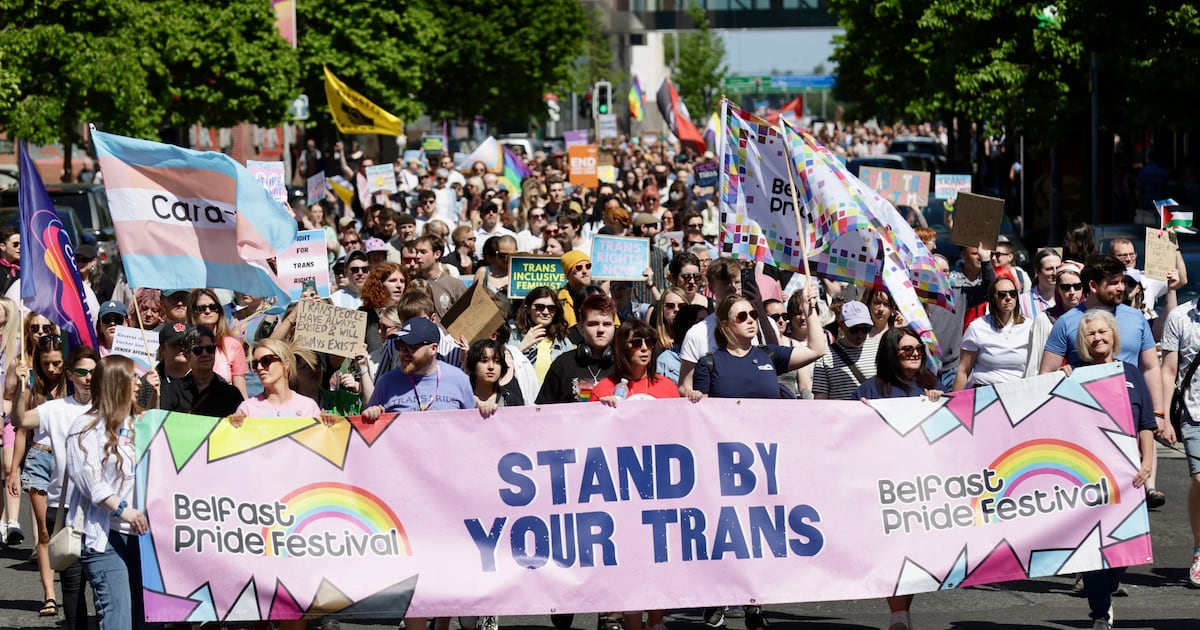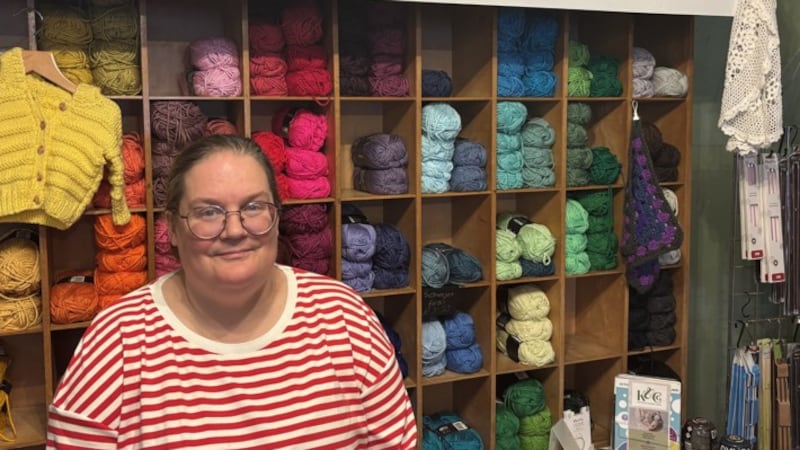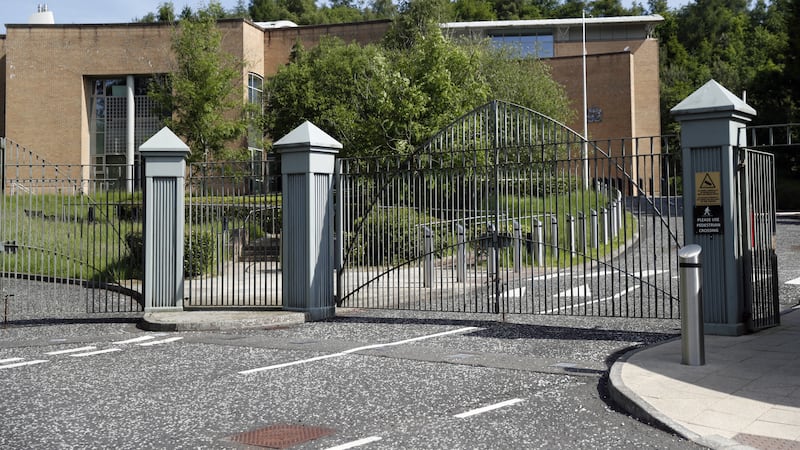A funding boost for Northern Ireland’s Gender Identity Clinic in Belfast has been “cautiously welcomed” by a campaign group.
Also known as the Brackenburn Clinic, the adult Gender Identity Clinic has been running at “an extremely limited capacity” for the last seven years.
Alexa Moore from The Rainbow Project told The Irish News it would give hope to trans people waiting years for various treatments such as hormone replacement therapy (HRT), speech and language therapy and referrals for “gender affirming surgery”.
“The service essentially froze between 2016-18 because of staff leaving and funding, and ever since then it’s just been extremely difficult,” Ms Moore said.
“There’s been a single doctor staffing and entire service with one or two admin staff. Essentially, it means there’s people on that list from over seven years.
“I was referred myself in 2018 and there’s been virtually no communication ever since from the clinic to establish what’s been going on, and all the while a review has been trundling on in the background.
“For myself and I know for countless other trans people, they’ve been forced to take matters into their own hands.
“I had to crowdfund for my own access to care, so there’s been a sense of hopelessness for trans people across Northern Ireland.”
 Alexa Moore from The Rainbow Project.
Alexa Moore from The Rainbow Project.
With an estimated 1,000 people already on the waiting list, Ms Moore warned trans people could still be waiting several years for their appointment.
“It’s not like trans people are all of a sudden going to be able to access this care.
“What it does mean is that trans people are going to feel that maybe Northern Ireland is a place where they can continue to live and be fully supported as well.”
Addressing those who will not agree with the decision to increase the funding, Ms Moore said: “Trans people, like everyone else, deserve access to the care that meets their needs.
“A lot of it is similar to care that’s already prescribed to other people – like puberty blockers for children facing precocious puberty.
“HRT is prescribed to menopausal women with hormonal imbalances. This is already care accessible to others, but not to trans people for what we actually need support with.”
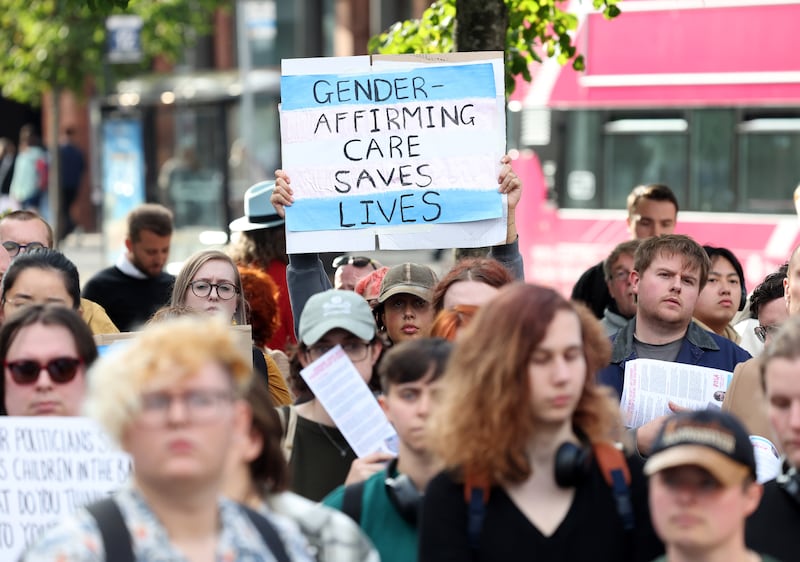 A rally at Belfast City Hall last year against the ban on puberty blockers . PICTURE: MAL MCCANN
A rally at Belfast City Hall last year against the ban on puberty blockers . PICTURE: MAL MCCANN
Following the introduction of a ban on the private sale of puberty blockers in Northern Ireland last year, Ms Moore said families were going elsewhere for treatment.
“There are a lot of different experiences out there, but the reality is that in Northern Ireland even before the ban was in place – the under 18s gender identity service had already stopped prescribing puberty blockers in 2020.
“So young people have been driven to private care anyway. But we’re not necessarily seeing people talking about it because they’re fearful of receiving abuse.”
Since then, the UK’s Supreme Court has also ruled that the legal definition of a woman refers to biological sex.
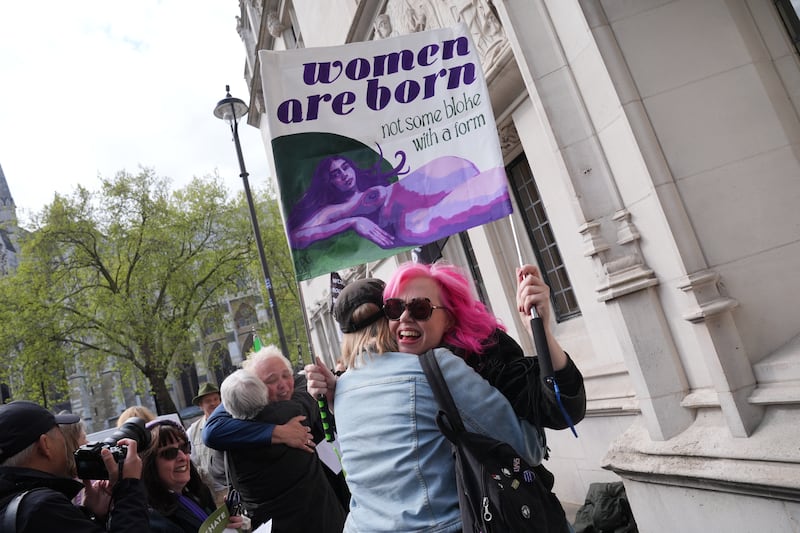 The UK’s Supreme Court ruled in April that the legal definition of a woman refers to biological sex, but the full implications for Northern Ireland are still being examined. (Lucy North/PA)
The UK’s Supreme Court ruled in April that the legal definition of a woman refers to biological sex, but the full implications for Northern Ireland are still being examined. (Lucy North/PA)
The legal implications are still being examined in Northern Ireland, but Ms Moore said it had made the trans community feel more vulnerable.
“I’ve always been subjected to a decent amount of abuse, unfortunately, from anti-trans voices online.
“That’s where people feel they have the anonymity. What I have seen since the Supreme Court judgement, even my engagements on the radio, people feel much more confident to misgender me and deny my identity.
“In May we had an event in Stormont around the Supreme Court judgement and the reaction to that was absolutely unhinged in the fear-mongering around trans people using the bathroom in Stormont.
“But trans people deserve access to their democratic institutions and public spaces where we can advocate for our rights.
“I think how the judgement has been interpreted and even weaponised has had a chill factor on trans people feeling able to speak about their direct experiences and that is very worrying.”
